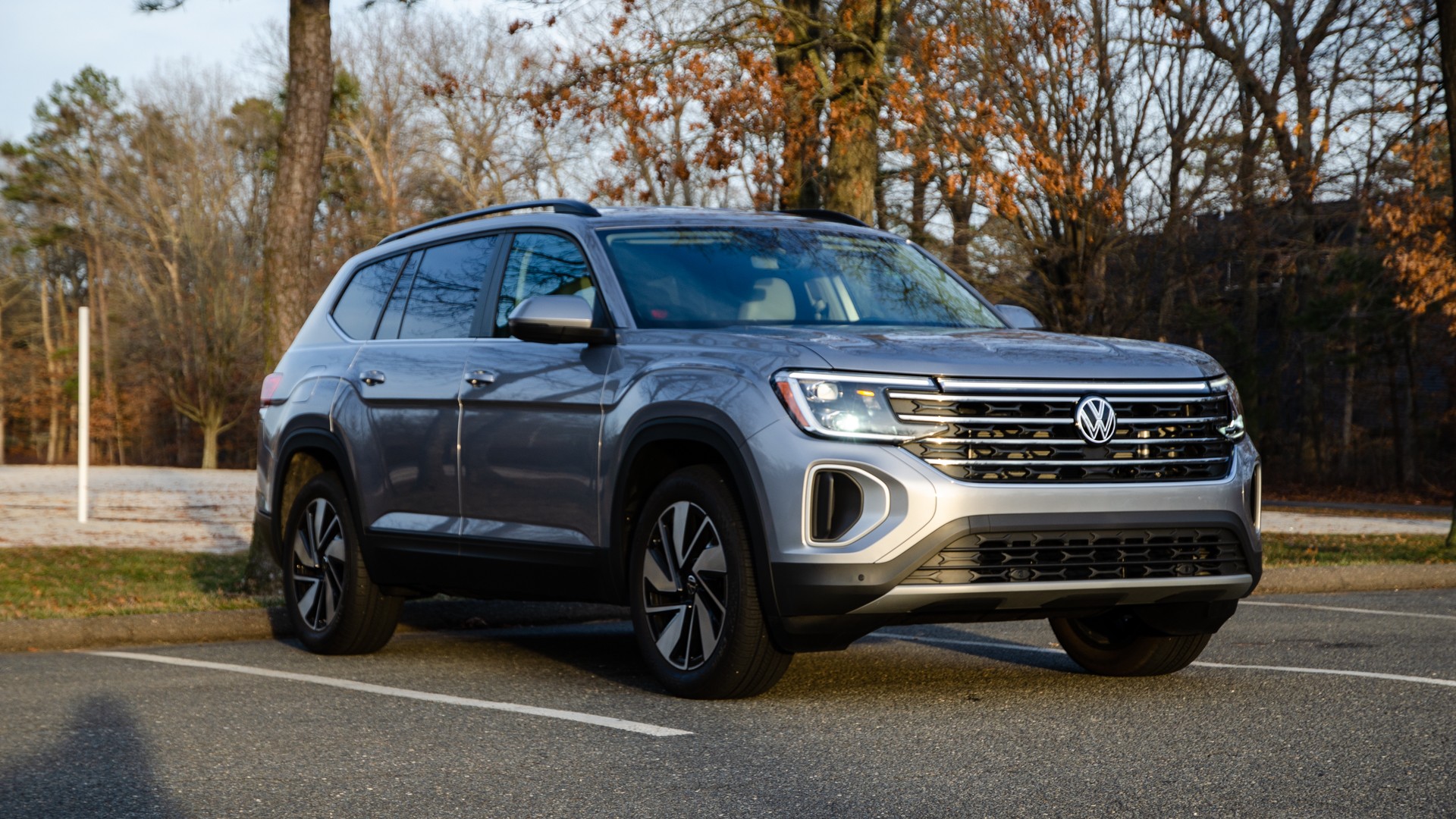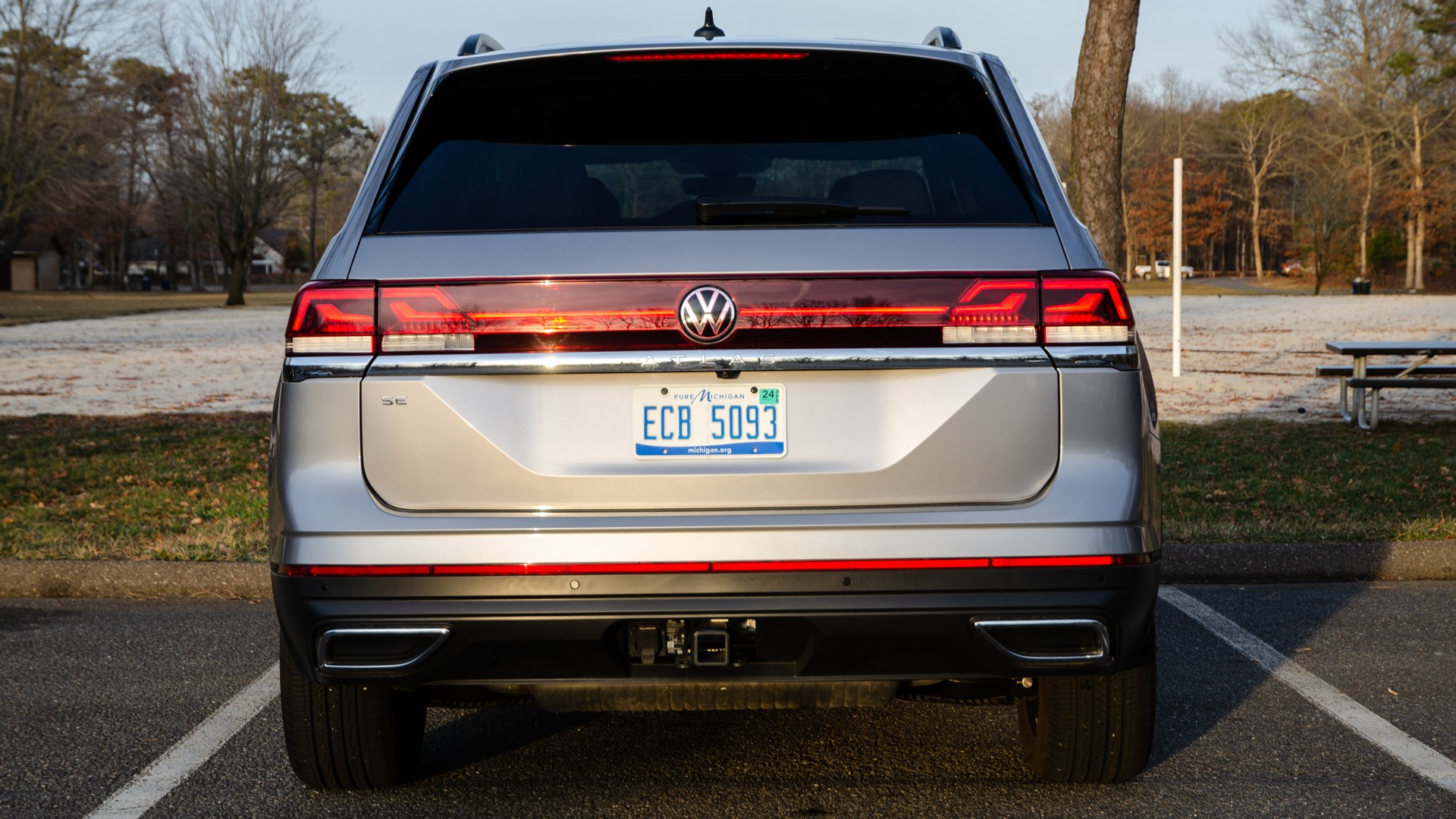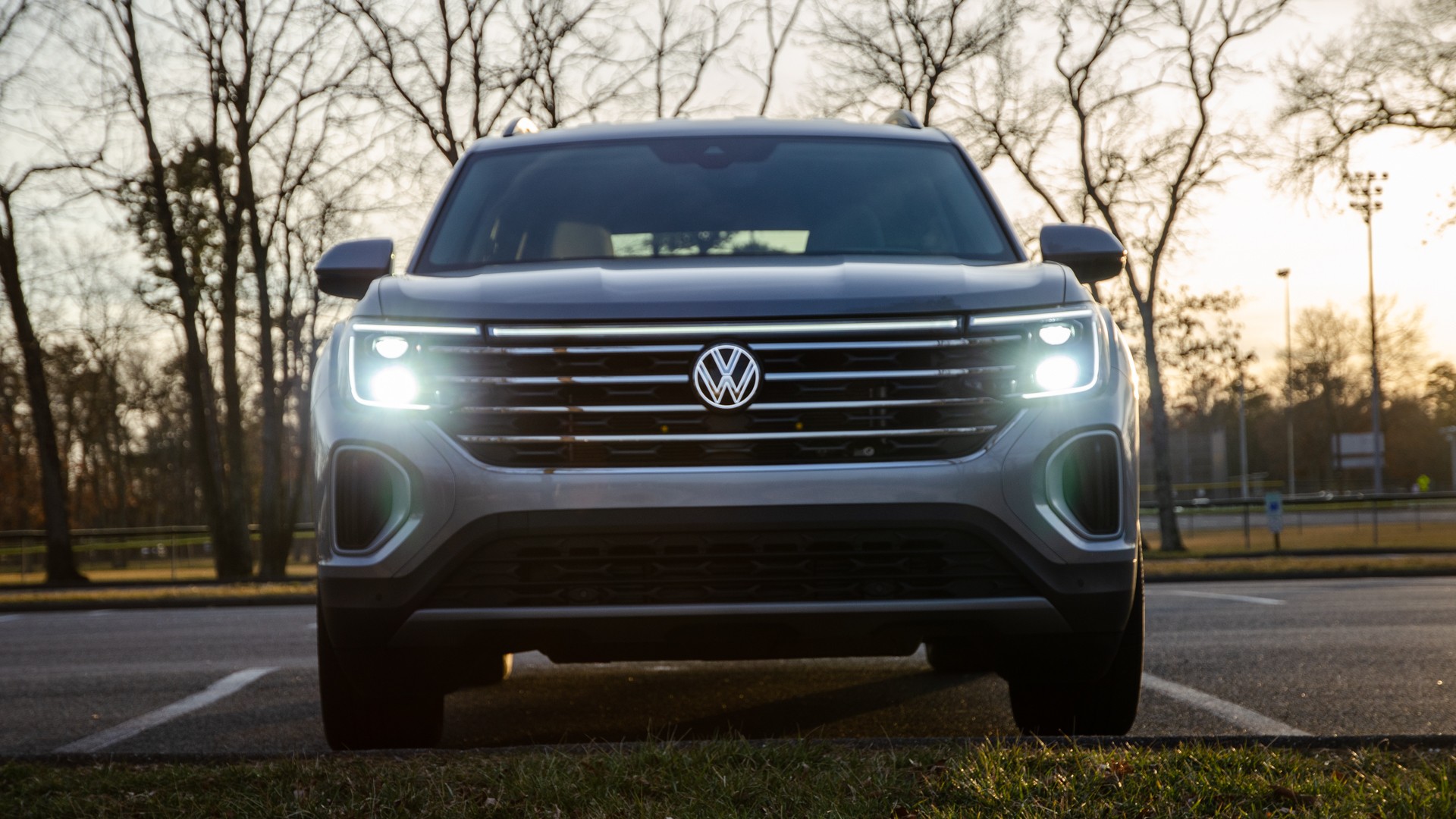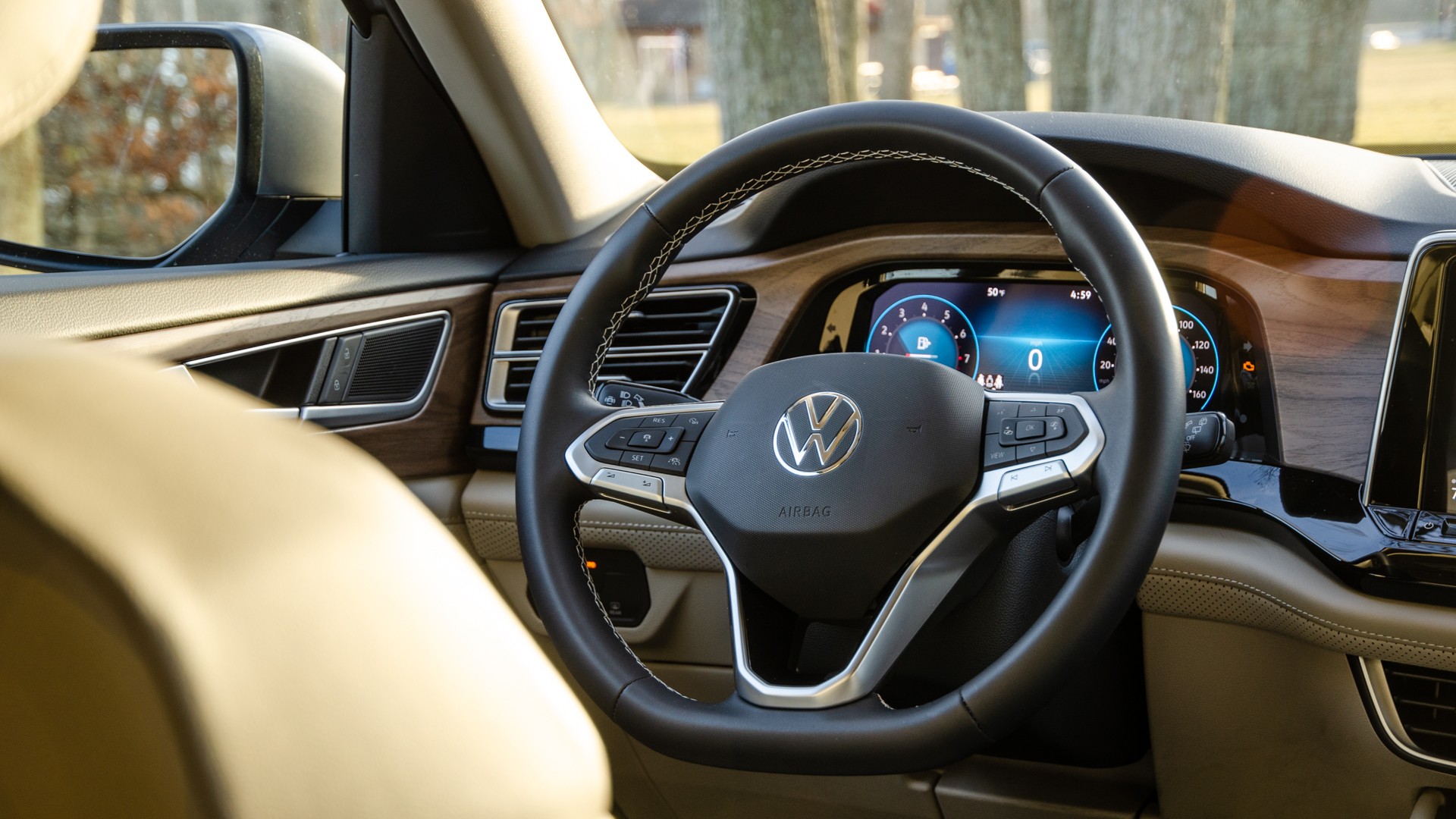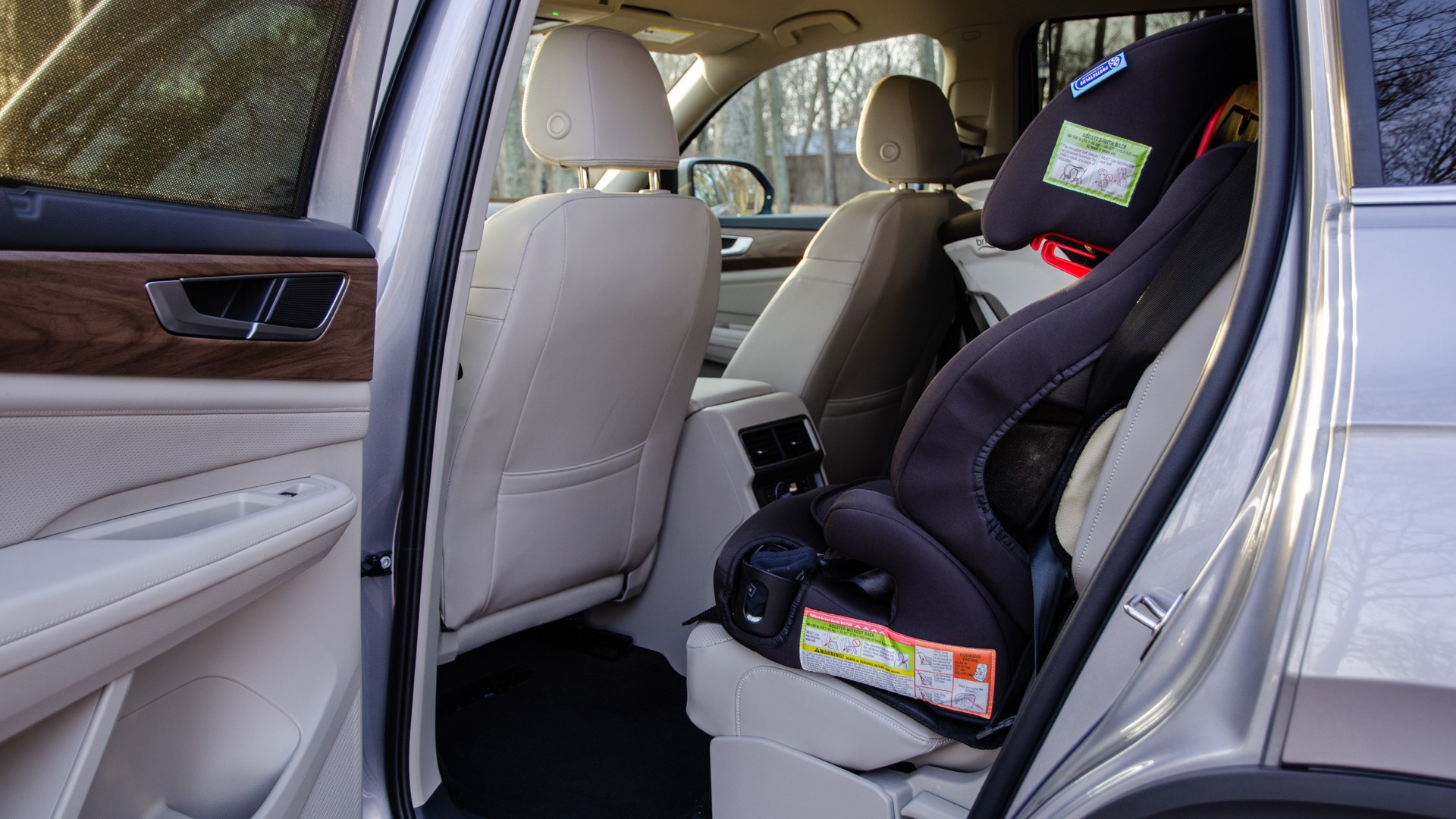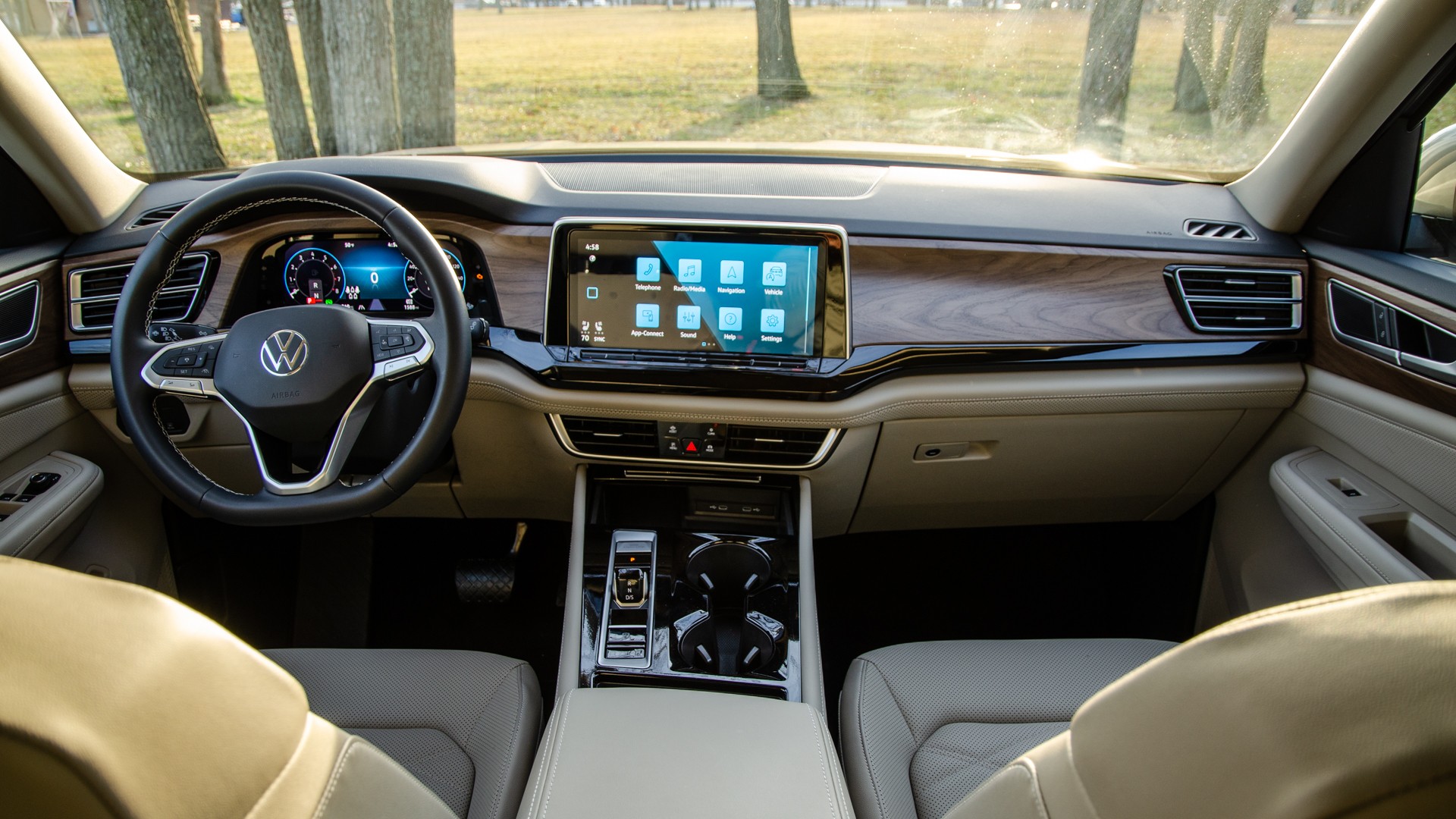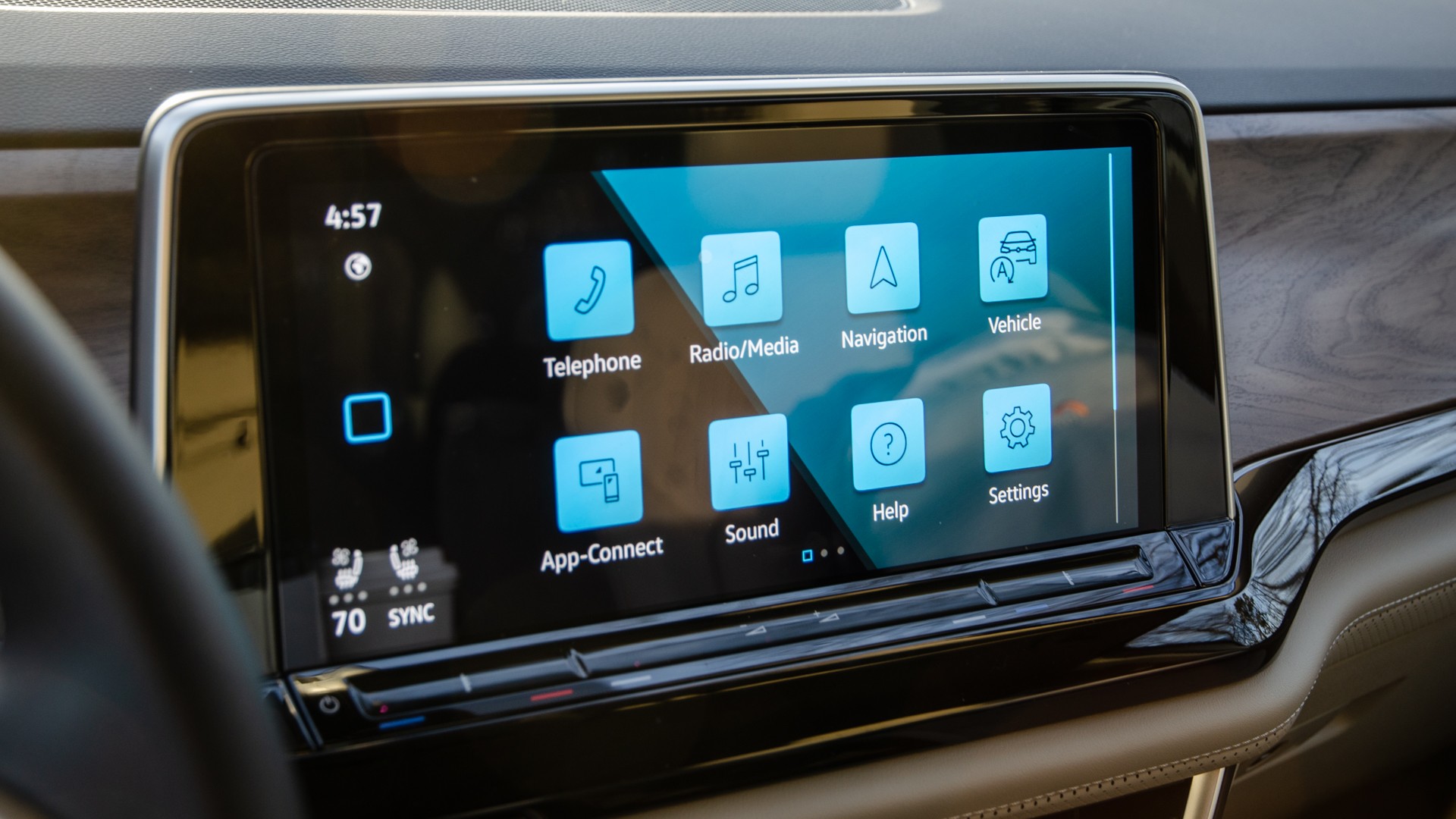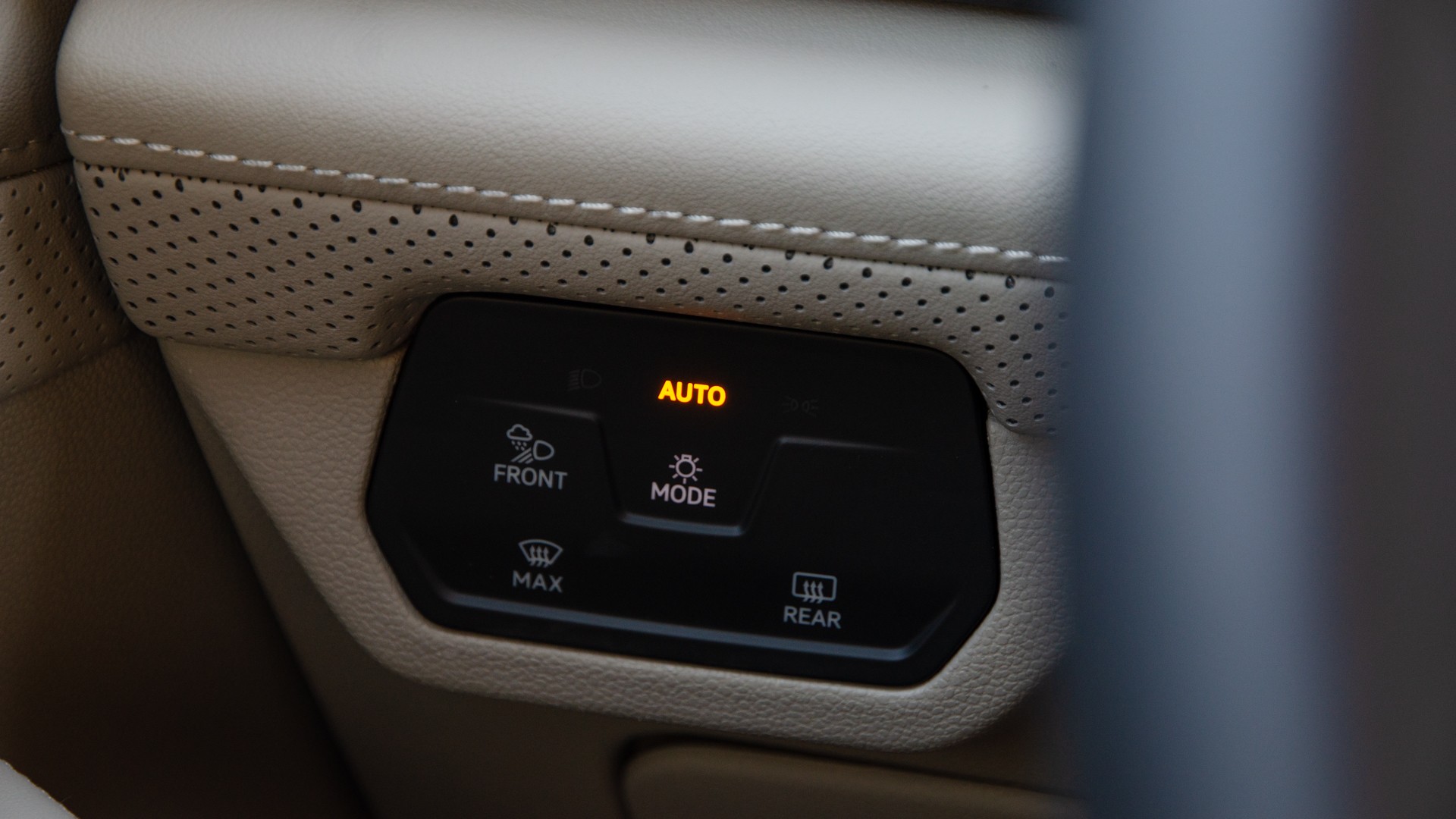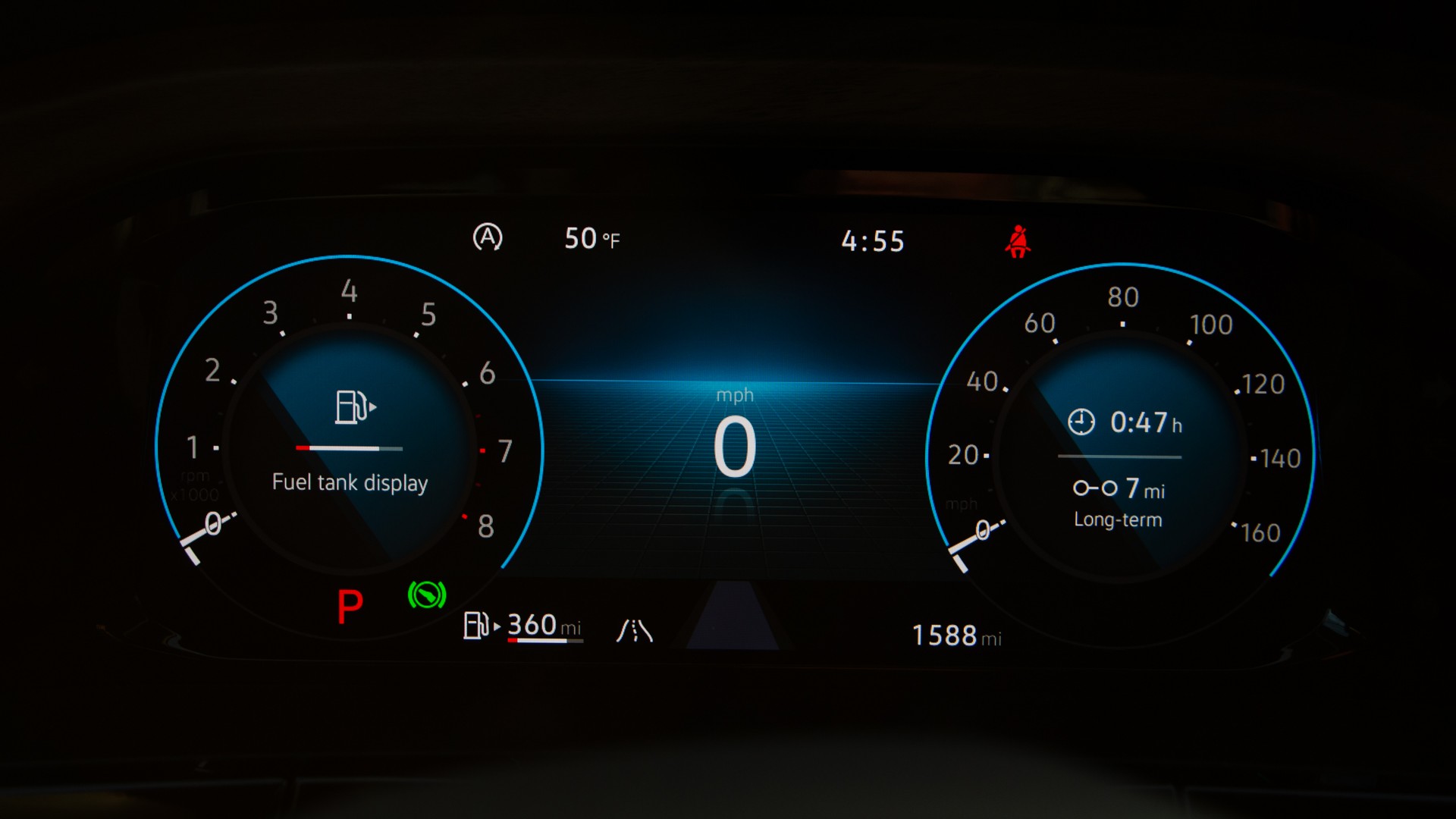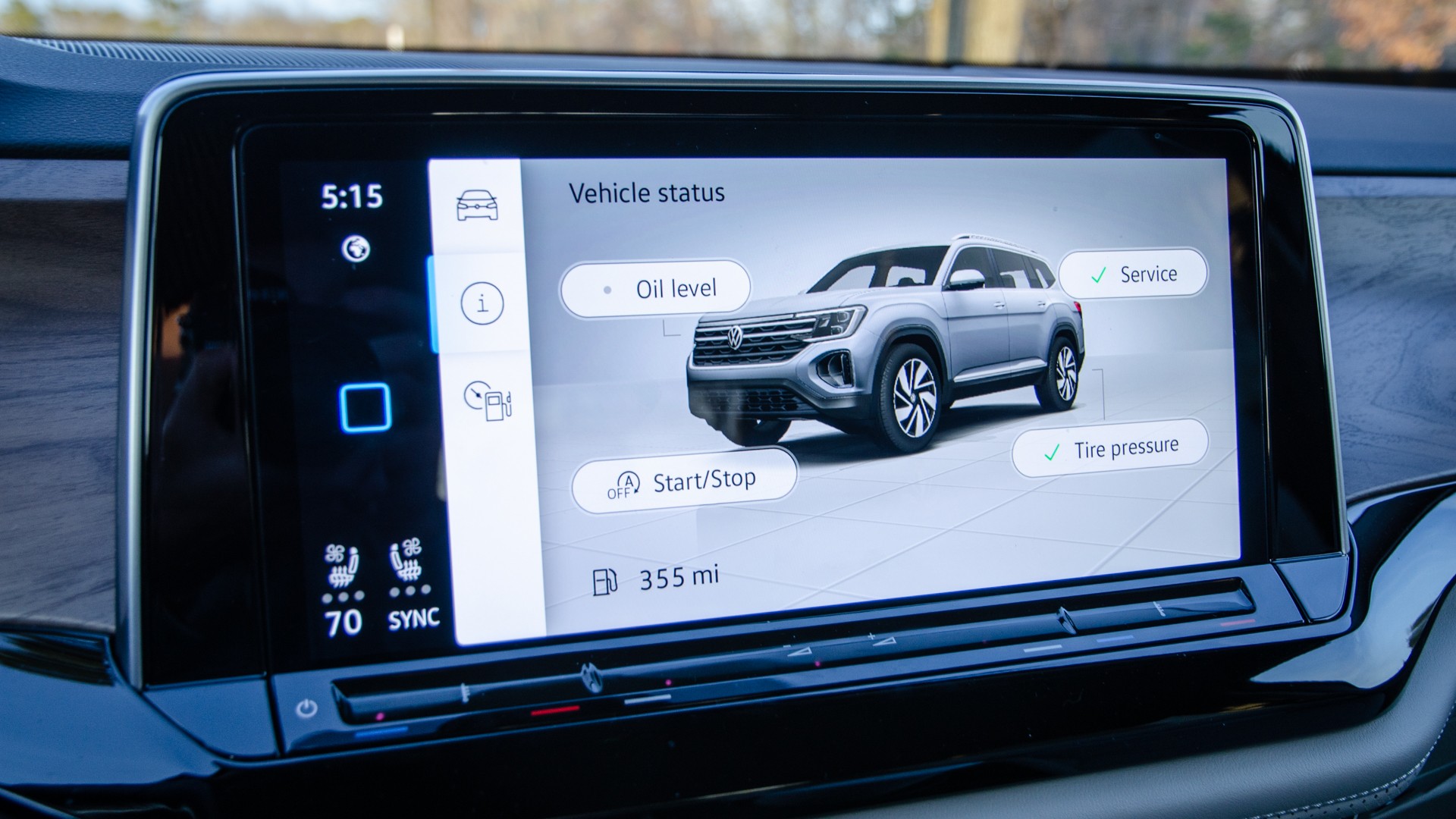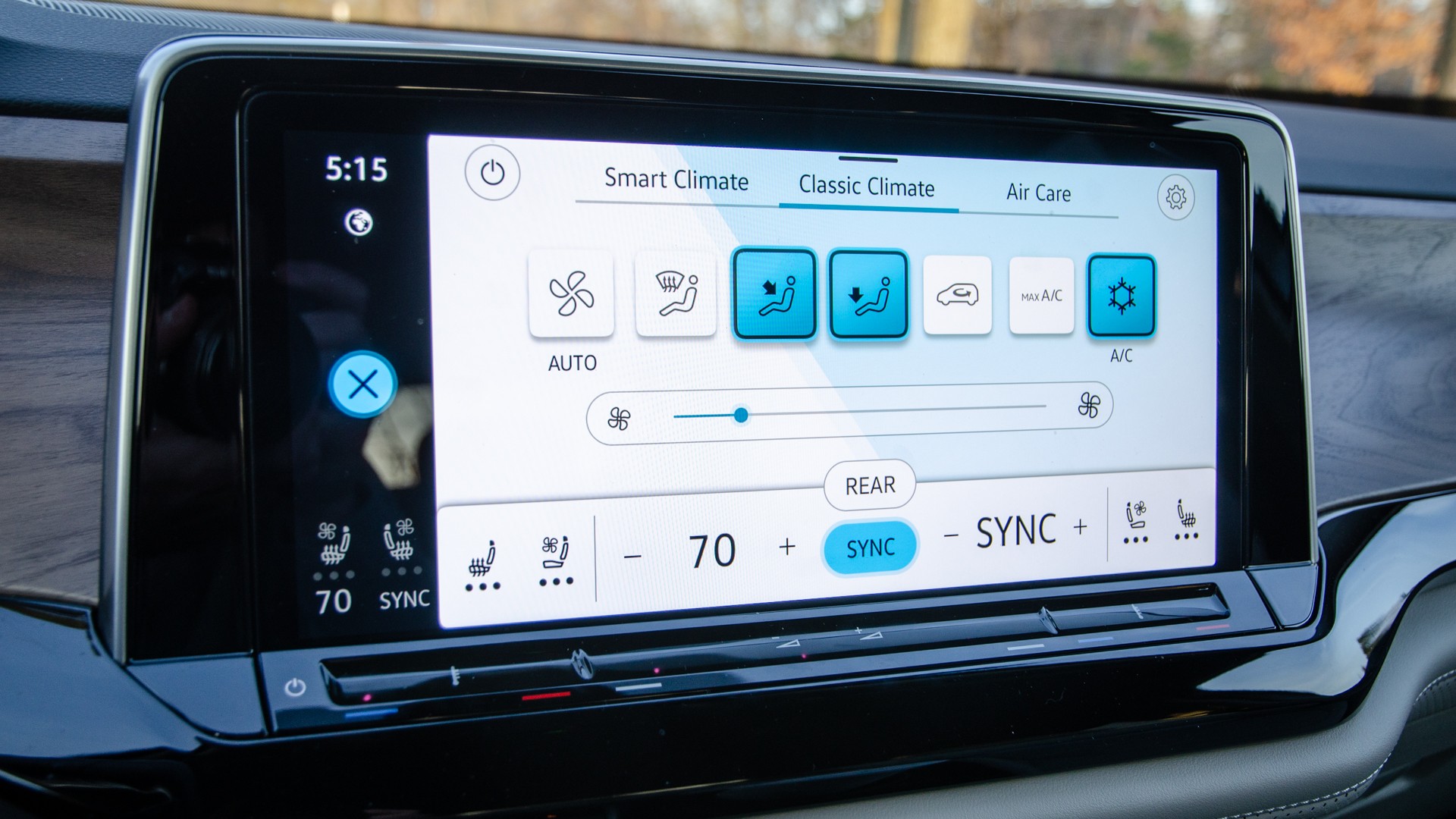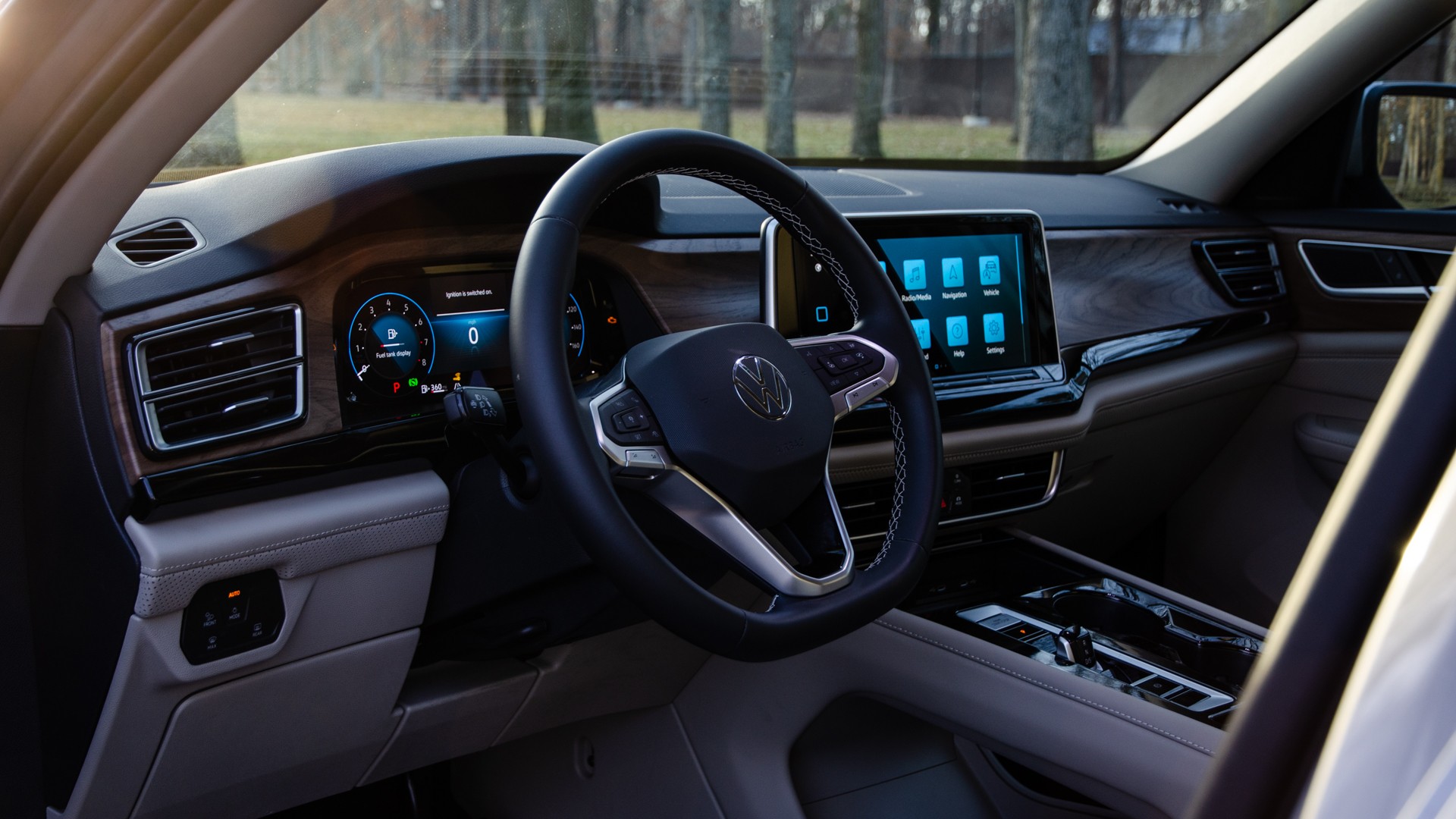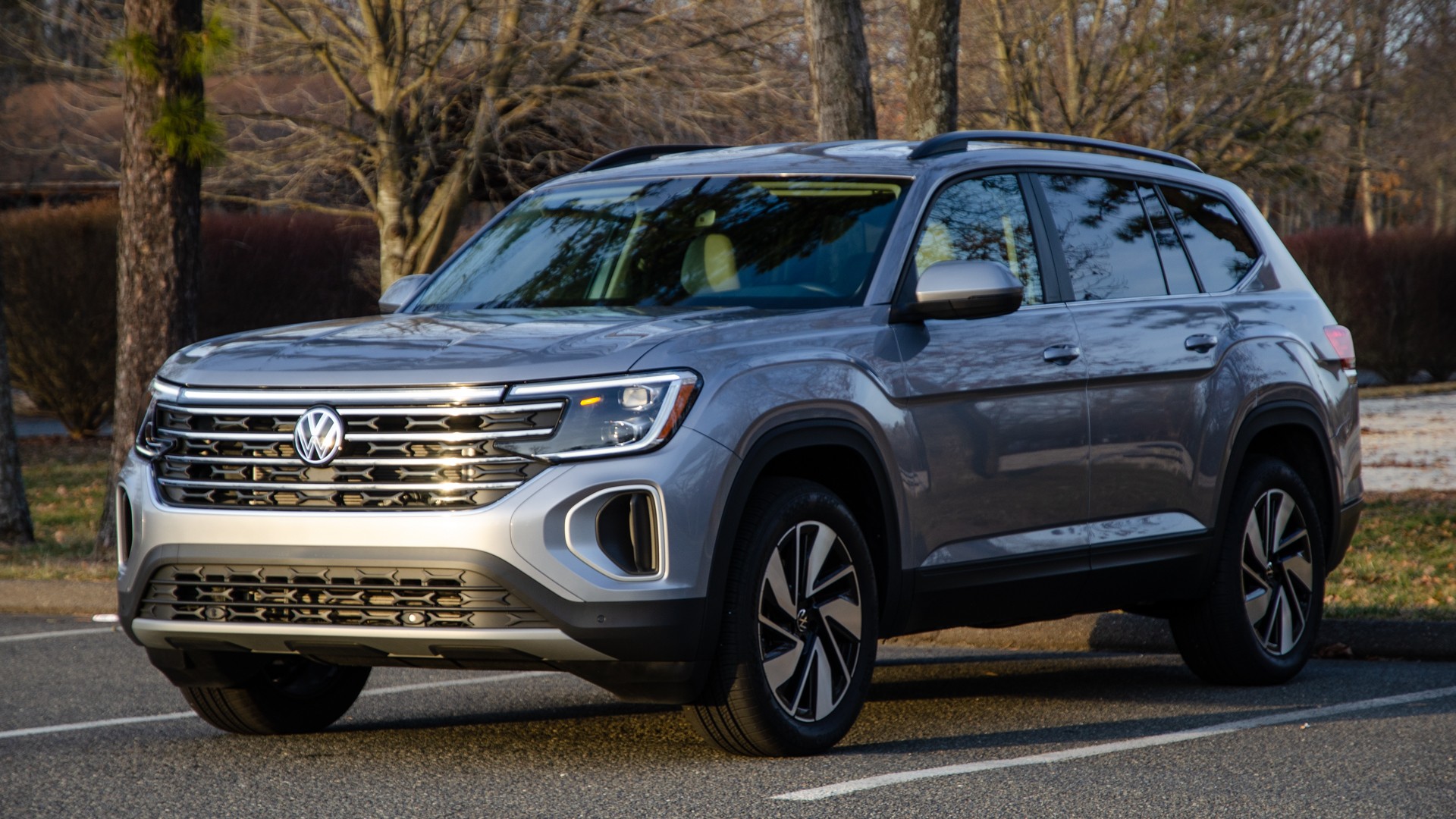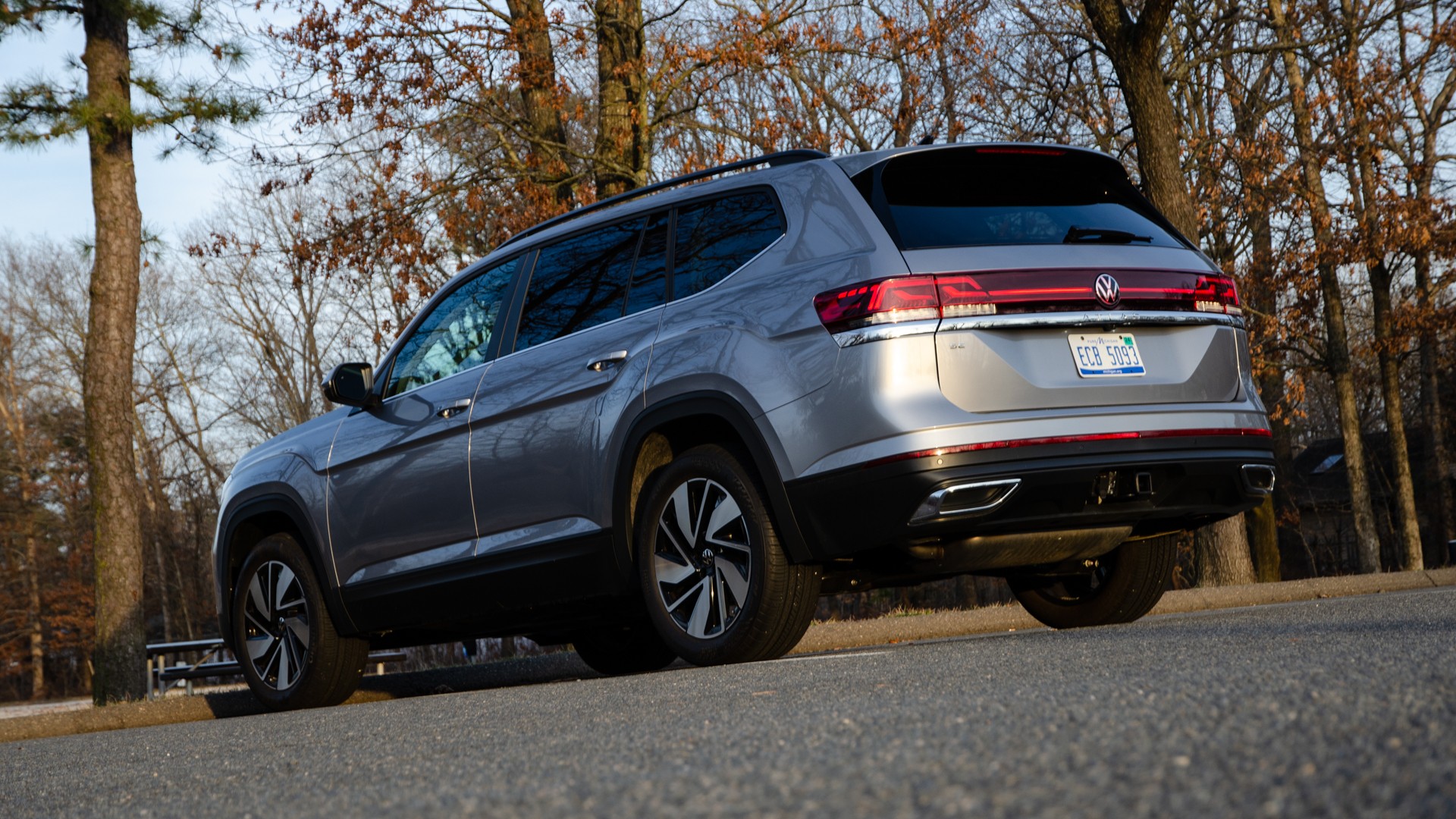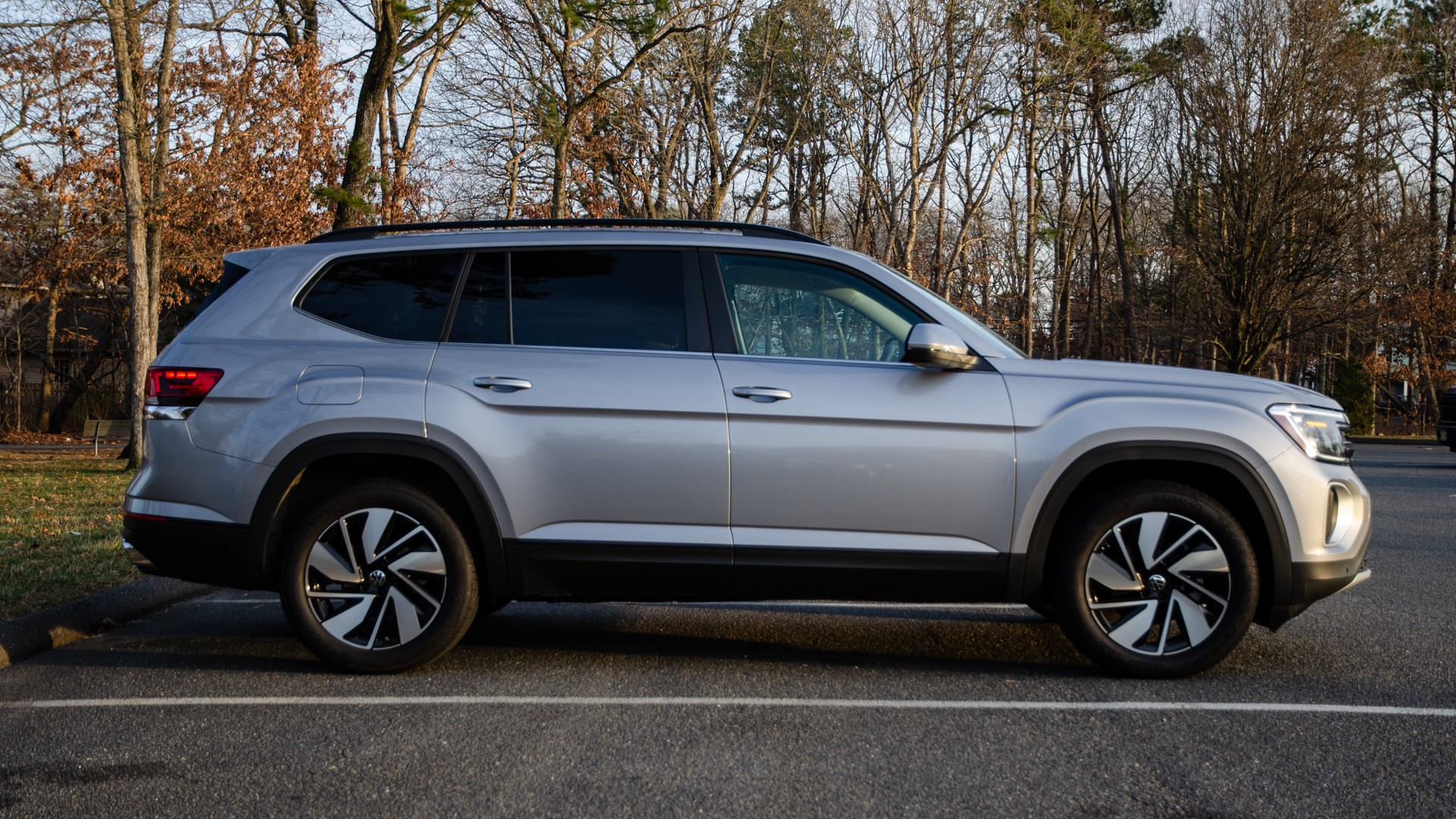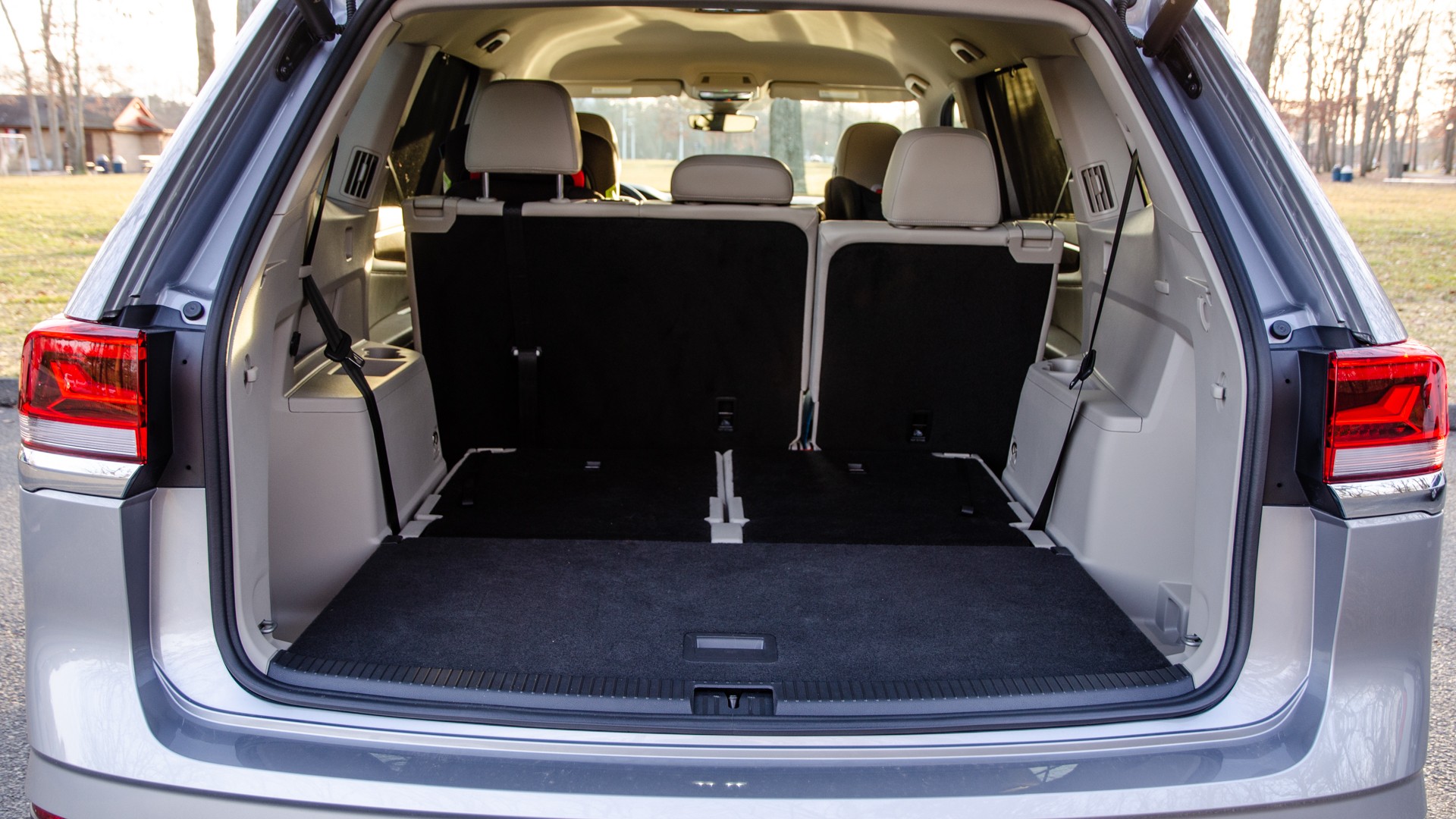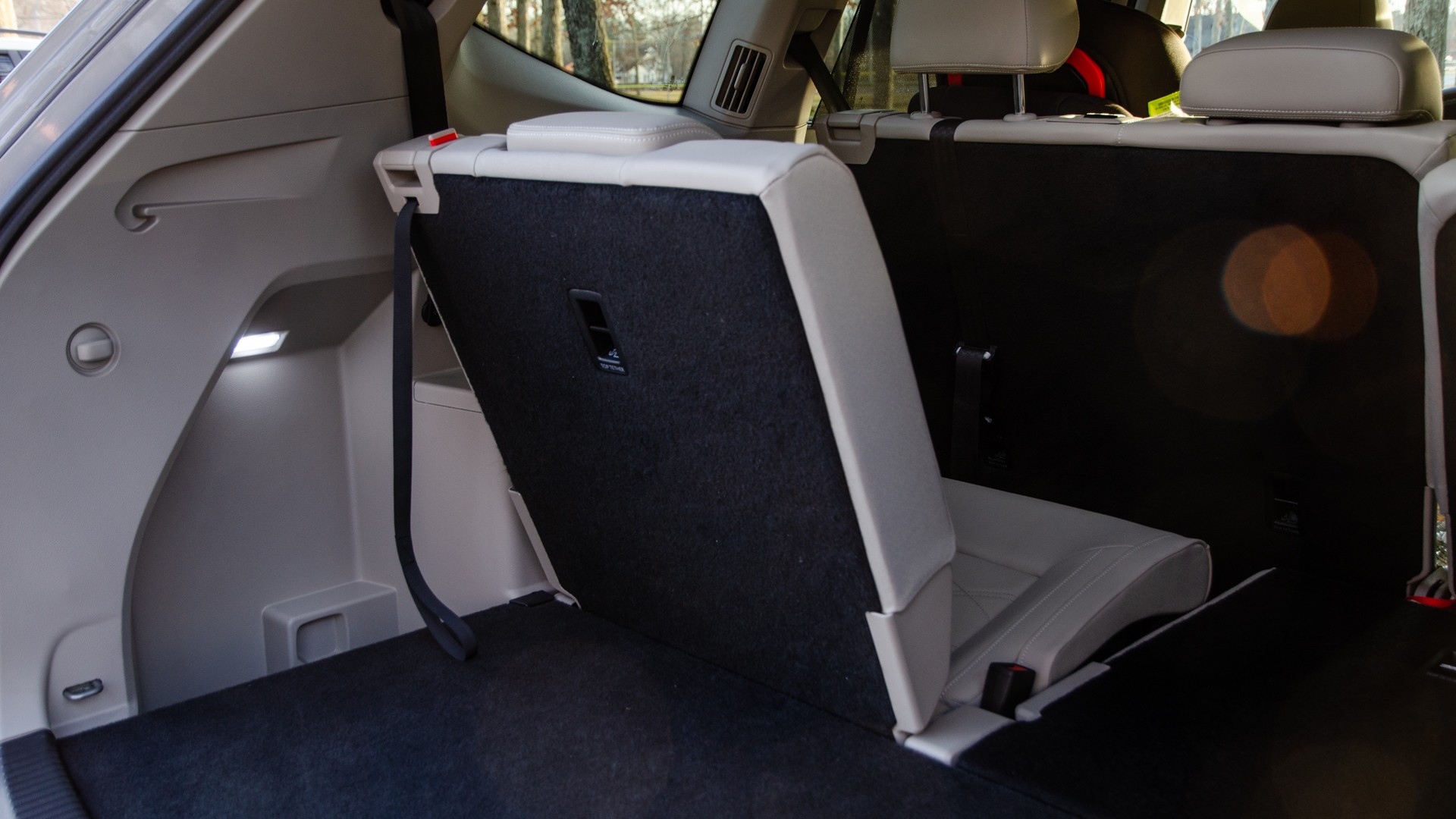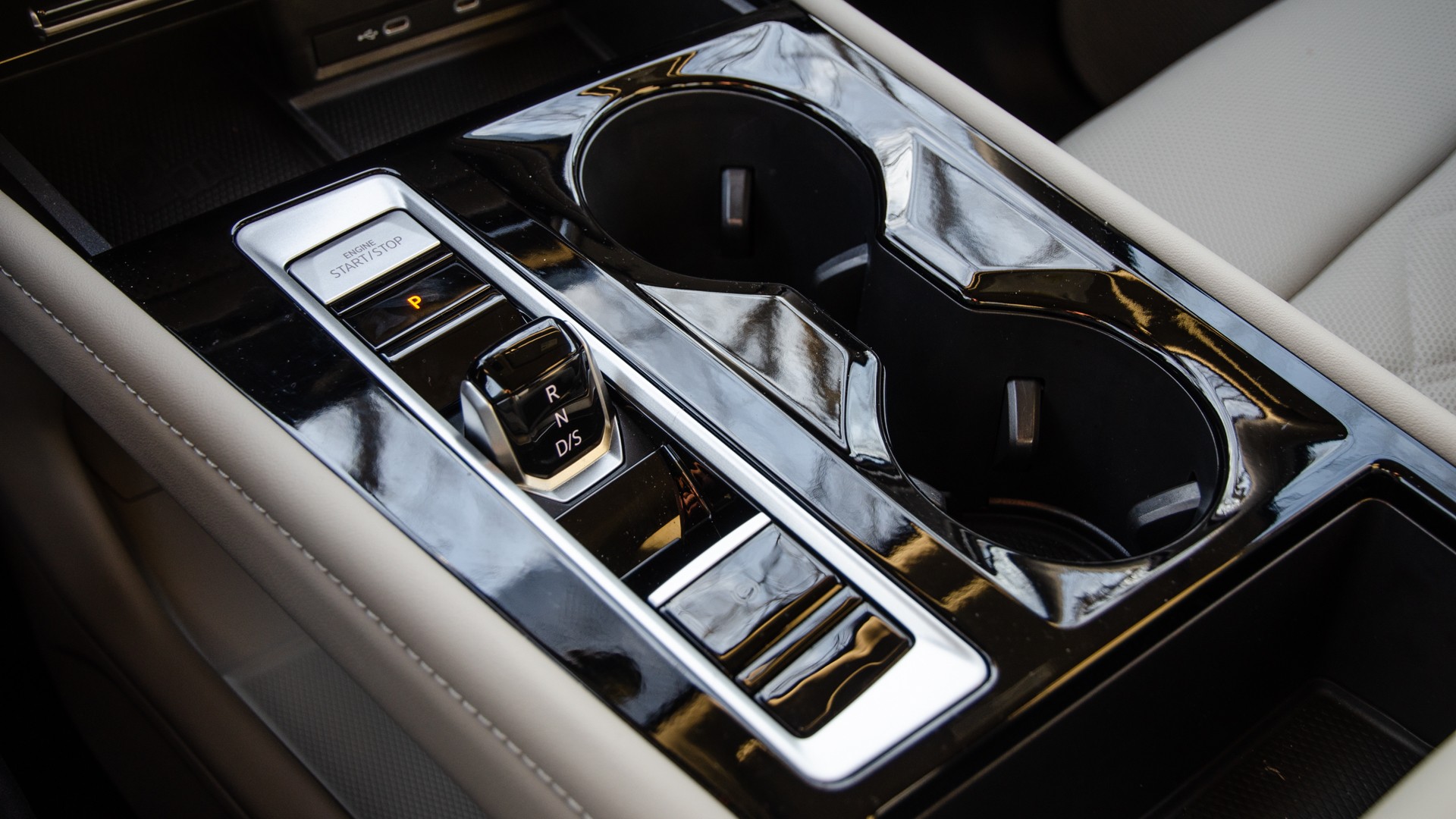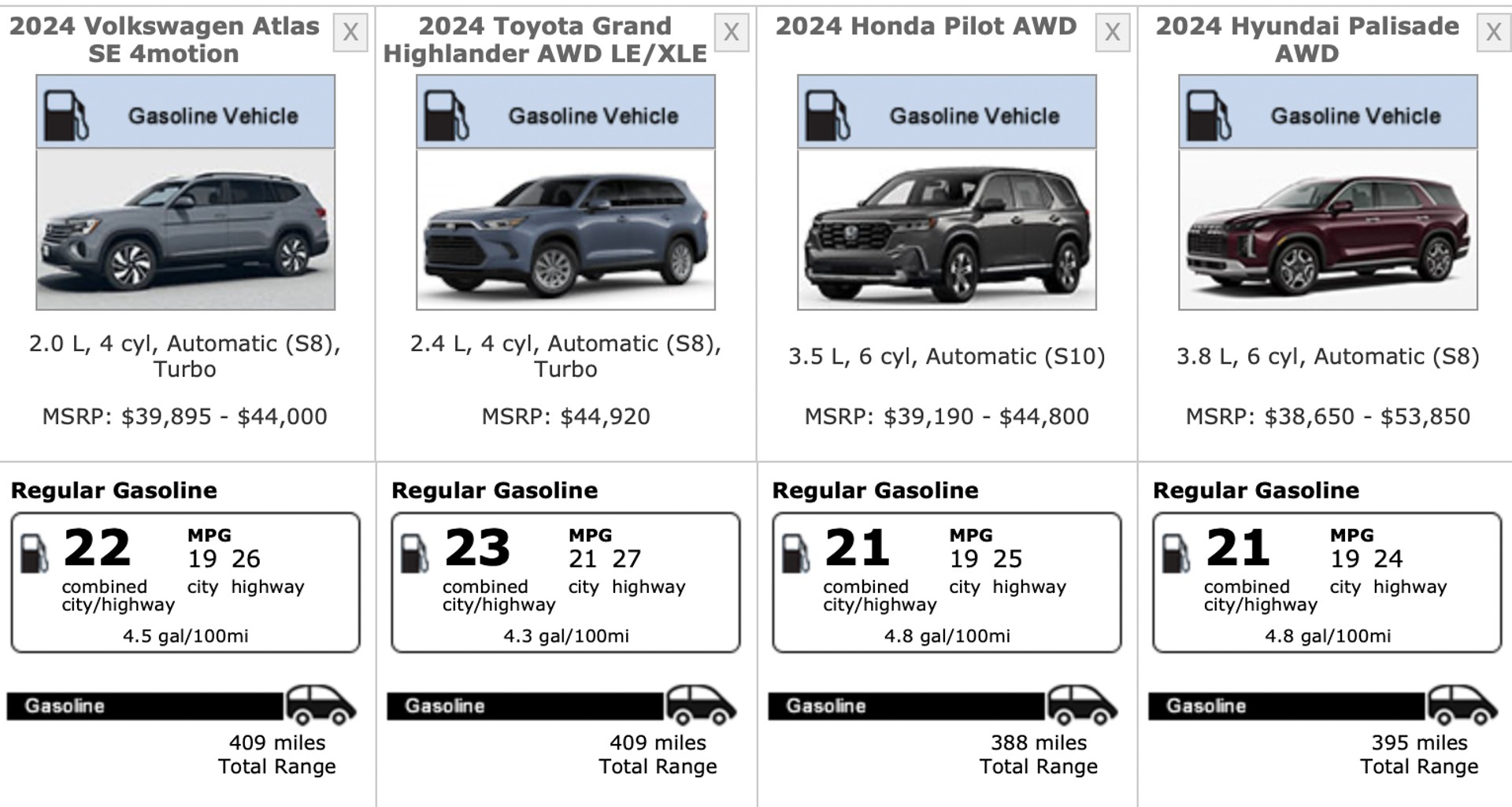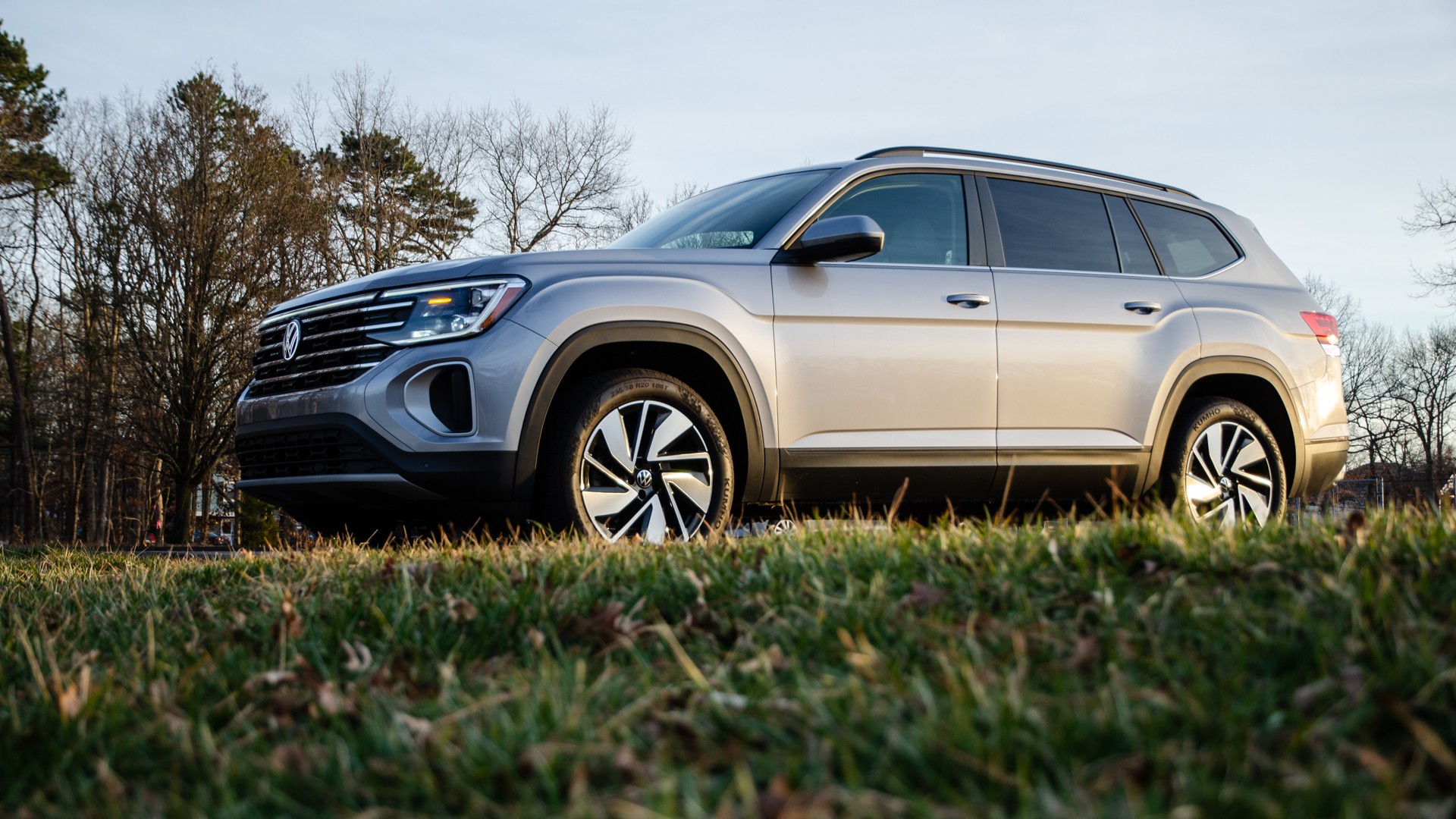The 2024 Volkswagen Atlas arrives with a refreshed design and a streamlined engine lineup, aiming to solidify its position in the competitive three-row SUV segment. As owners of a 2018 Volkswagen Tiguan ourselves, and with a deep appreciation for VW’s generally excellent driving dynamics, we approached the 2024 Atlas with considerable optimism. Our Tiguan has consistently impressed with its nimble handling and balanced ride, setting a high bar for Volkswagen’s SUV offerings. However, our initial drive in the updated Atlas revealed a stark contrast, leaving us questioning if this iteration truly lives up to the Volkswagen nameplate, especially when considering the increasingly impressive competition in the family SUV market. While the Atlas presents a spacious interior and updated styling, a deeper dive into its driving experience and technological execution is crucial for any prospective buyer. This comprehensive review will explore the nuances of the 2024 VW Atlas, dissecting its strengths and weaknesses to help you determine if it’s the right choice for your family.
2024 VW Atlas: The Basics and What’s New
The 2024 Volkswagen Atlas marks a significant refresh for the model, rather than a complete overhaul. Volkswagen has focused on updating both the exterior and interior aesthetics, alongside refining the powertrain options. Gone are the days of choosing between a 2.0-liter turbo-four and a V6; the 2024 Atlas now exclusively features an enhanced 2.0-liter turbocharged four-cylinder engine. Accompanying these changes are technological upgrades, incorporating VW’s latest touchscreen infotainment system and an expanded list of standard features.
Visually, the 2024 Atlas retains its recognizable silhouette but introduces a more contemporary flair. The front end receives a complete redesign, featuring new headlights, a more prominent grille, and a reshaped front bumper. These elements combine to give the Atlas a bolder, wider stance, though whether it’s a definitive improvement in aesthetics remains subjective. At the rear, a new taillight bar adds a touch of modernity, offering a visual upgrade from the previous model’s simpler taillights. While the updated Atlas is arguably handsome, it faces stiff competition from more visually striking SUVs like the Hyundai Palisade, Jeep Grand Cherokee, and the Toyota Grand Highlander, making it blend somewhat into the crowded segment.
Inside, Volkswagen has implemented a dramatic interior transformation for the 2024 Atlas, representing a notable departure from its predecessor. The cabin presents a visually appealing design characterized by an open and spacious feel, accentuated by generous wood trim and a simplified center console. However, this aesthetic upgrade comes with a significant functional trade-off. The previously user-friendly touchscreen interface has been replaced with the newer system found in models like the Golf and ID.4. This new infotainment system is widely criticized for its complexity and lack of intuitiveness. Simple tasks require navigating through multiple menus, and the touch-sensitive controls for essential functions like volume and temperature are often unresponsive and frustrating to use. Adding to the ergonomic challenges, some climate controls, including the rear defroster, are inexplicably located low on the dashboard, near the driver’s left knee, creating further usability issues.
On a more positive note, the powertrain of the 2024 Atlas receives enhancements. While the V6 engine is no longer available, the updated 2.0-liter turbocharged four-cylinder engine delivers increased power, now producing 269 horsepower and 273 lb-ft of torque, up from the previous 235 hp and 258 lb-ft. This engine remains paired with an eight-speed automatic transmission and is available with either front-wheel or all-wheel drive. The increased power output enables the Atlas to accelerate from 0 to 60 mph in a respectable 7.5 seconds, providing adequate performance for daily driving. The engine is noted for its smooth operation and refined character, and the eight-speed automatic transmission offers smooth and timely shifts. However, the simulated engine noise in Sport mode is described as exaggerated and artificial, detracting from the overall driving experience.
Driving Dynamics: Where the 2024 VW Atlas Falters
Despite the improved powertrain, the driving experience of the 2024 Atlas is a significant area of disappointment. Drawing comparisons to the well-regarded handling of the Volkswagen Tiguan, the Atlas falls short in delivering an engaging or refined driving feel. While the Tiguan boasts responsive steering and balanced handling, the Atlas is described as feeling cumbersome and uninspired on the road. The steering is characterized as excessively light and slow, lacking the feedback and precision expected from a Volkswagen vehicle. Compared to competitors like the Toyota Grand Highlander and Mazda CX-90, which offer more engaging driving dynamics despite their size, the Atlas lags behind in delivering a satisfying experience behind the wheel.
However, the Atlas compensates to some extent with its comfortable ride quality. The suspension effectively absorbs road imperfections, providing a smooth and composed ride, aligning with expectations for a German SUV. The cabin remains quiet at highway speeds, further enhancing passenger comfort. For buyers prioritizing ride comfort over engaging handling, the Atlas may still hold appeal. Nonetheless, rivals like the Grand Highlander and CX-90 demonstrate that it is possible to achieve both comfortable ride quality and enjoyable steering in this vehicle class.
High Points and Low Points of the 2024 Atlas
The 2024 VW Atlas is not without its merits. Its spacious three-row cabin is a significant strength, offering ample room for passengers and numerous storage compartments, creating a comfortable and practical environment for families. Large windows contribute to excellent outward visibility, a valuable feature for a vehicle of this size. Volkswagen’s safety systems, including automatic emergency braking and rear cross-traffic alert, are praised for their effectiveness and reliability.
Conversely, the drawbacks of the 2024 Atlas are notable. The frustrating infotainment system and inconvenient interior controls are major points of criticism. The digital instrument cluster is described as uninspired and cluttered. The base SE model seats are considered too flat for long-distance comfort. Even minor details, like overly tight cupholders, contribute to a sense of compromised usability.
Features, Options, and Market Competition
The 2024 Volkswagen Atlas SE starts at a base price of $39,420, including standard features such as heated and ventilated front seats, three-zone climate control, leatherette upholstery, and the 12-inch infotainment system. All-wheel drive (4Motion) is available for an additional $1,900.
The tested model, equipped with the Technology Package, includes 20-inch wheels, illuminated VW badges, park distance control, a tow hitch, manual sunshades, and remote start, bringing the price to $43,015. Despite this package, a sunroof is not included, requiring further options to equip.
When evaluated against its competitors, the 2024 Atlas faces challenges. SUVs like the Hyundai Palisade, Honda Pilot, and Toyota Grand Highlander offer more modern designs and a richer set of standard features. Furthermore, hybrid powertrain options are increasingly common in this segment, with models like the Toyota Grand Highlander and Jeep Grand Cherokee offering more fuel-efficient alternatives, which the Atlas currently lacks.
Fuel Efficiency of the 2024 VW Atlas
Despite its four-cylinder engine, the 2024 VW Atlas’s fuel economy is not significantly better than its V6-powered competitors. It achieves an EPA-estimated 19 mpg in the city and 26 mpg on the highway, resulting in a combined 22 mpg. This fuel economy is comparable to, or only slightly better than, rivals like the Hyundai Palisade and Honda Pilot. The Toyota Grand Highlander, even without considering its hybrid versions, matches the Atlas’s city mpg and surpasses it on the highway, achieving a combined 23 mpg.
Value and Final Verdict on the 2024 VW Atlas
From a purely financial perspective, the 2024 Volkswagen Atlas is competitively priced within its segment. Its pricing, standard equipment, engine performance, and fuel economy are generally in line with its rivals. However, in terms of interior technology and overall design execution, the Atlas feels somewhat dated, reflecting its underlying platform that dates back to 2017.
Ultimately, the 2024 VW Atlas’s shortcomings are primarily in its execution. While it offers fundamental strengths as a spacious and comfortable three-row SUV with a capable powertrain, critical flaws detract from its overall appeal. The frustrating infotainment system, uninspired steering, and less-than-ideal cabin ergonomics diminish the driving and ownership experience compared to many competitors. Lacking a standout feature that distinguishes it from the crowded segment, the 2024 VW Atlas emerges as a less compelling option within the three-row SUV market. It earns a score of 6.5/10, reflecting its mixed bag of attributes.
| 2024 Volkswagen Atlas Specs |
|---|
| Base Price (SE Technology as tested) |
| Powertrain |
| Horsepower |
| Torque |
| Seating Capacity |
| Max Towing |
| Curb Weight |
| Cargo Volume |
| Ground Clearance |
| 0-60 mph |
| Off-Road Angles |
| EPA Fuel Economy |
| Quick Take |
| Score |

